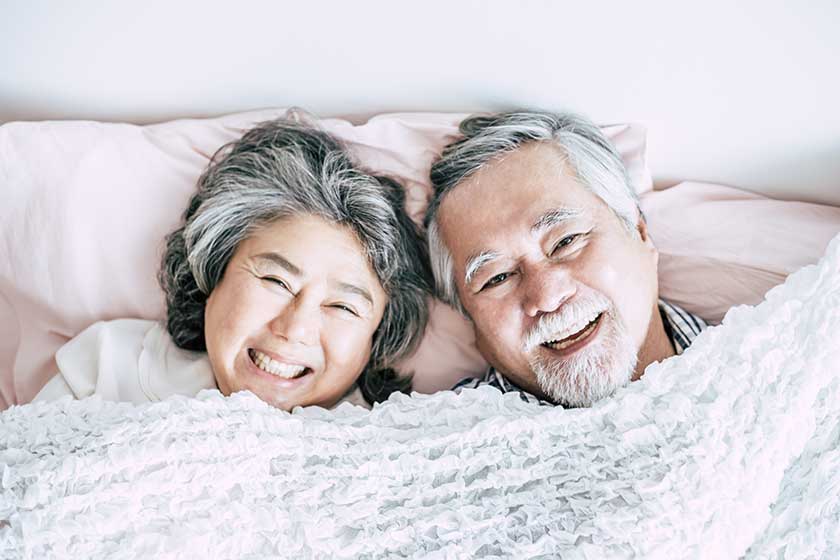Traditional wisdom has always emphasized the need to have adequate high-quality sleep. Quality sleep is associated with a lower risk of heart disease in older individuals, increased cognitive functioning, and a slew of other advantages. However, according to a 2017 National Poll on Healthy Aging, over 50% of individuals aged 65 to 80 had trouble falling asleep on a daily basis.
Good sleep hygiene is setting yourself up in the strongest position to sleep well every night, especially in independent living retirement communities where you have full autonomy over your schedule. If you’re suffering chronic sleep interruptions or feeling fatigued during the day and wish to optimize your sleep hygiene, check out these eight tips for how to sleep better in your 60s!
Develop Healthy Daytime Routines
Cultivating good daily habits can help improve your circadian rhythm and reduce sleep interruptions. Strive to get plenty of sunlight and stay physically active through various fitness programs. Exercising regularly will help you sleep better at night!
Establish a Consistent Sleep Schedule
Set a fixed time each day to wake up, be it a Monday or a Saturday, because an ever-changing schedule will prevent you from developing a stable sleep pattern. If you treat sleep as a necessary component of your day, your body will become acclimated to having sufficient sleep.
Don’t Take Too Many Naps
Napping might be a good method to recharge your batteries in the daytime, but it can disrupt your sleep at night. To avoid this, take short catnaps of no more than 20 minutes, and only at midday.
Maintain a Consistent Bedtime Routine
Follow a standard pre-sleep ritual for things like brushing your teeth and slipping on pajamas. These will reaffirm to your brain that it’s bedtime, help you relax, and make it easier to doze off.
Put Down Digital Devices 30 Minutes Before Bed
Include a 30 or 60-minute pre-bedtime window free of all bright lights and digital devices. Mobile phones, iPads, and computers stimulate the mind in ways that are difficult to switch off. The blue light emitted by these gadgets has also been known to reduce melatonin secretion, a hormone produced by the body to support sleep.
Allow 30 Minutes for Unwinding Before Bed
Mild stretching, rhythmic breathing, reading, meditation, and other relaxation exercises coupled with gentle music, can provide a calm environment to unwind before bed. Make sure you’re not doing something that will stimulate your mind like puzzle games or Facebook surfing!
Cut Down on Caffeine, Alcohol, and Smoking
Caffeine being a stimulant will keep you awake even when you’re tired, so be sure to forgo it in the late afternoons and evenings. Alcohol may make it easier to doze off, but the effects fade off throughout the night and interrupt your sleep. Nicotine also rouses the body’s functions such that it can impair sleep.
Enhance Your Sleep Environment
Your bedroom should exude peace and be devoid of disturbances! Aside from having the comfiest mattress, pillows, and sheets, it’s also good to keep a cool, pleasant temperature. Moreover, to keep bright lights from disrupting your sleep, try using an eye mask or blackout curtains. To block out distracting noises, use earplugs, a fan, or a white noise machine. To create a tranquil, aromatic environment, use calming scents like lavender.






